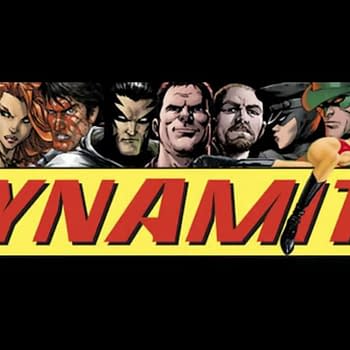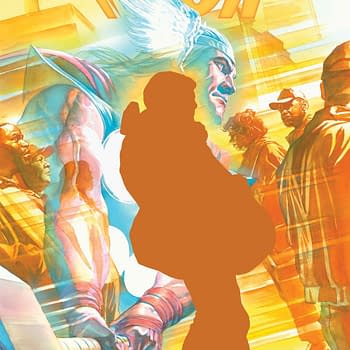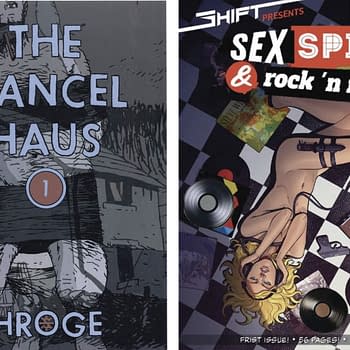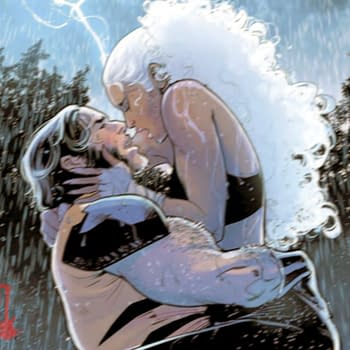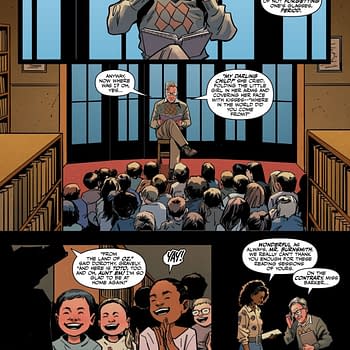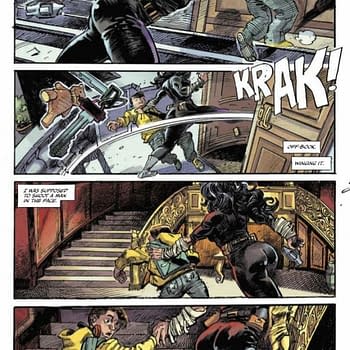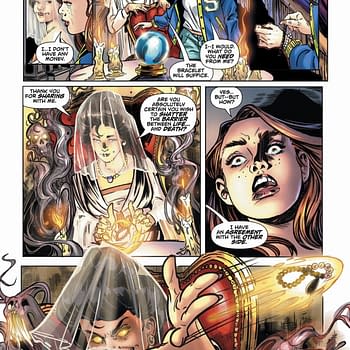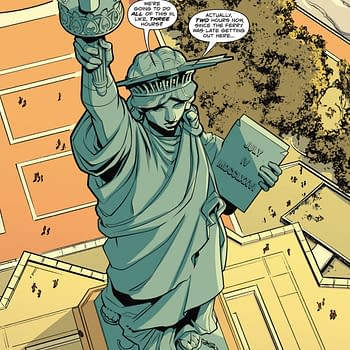Posted in: Comics, DC Comics | Tagged: black adam, dc comics, Paul Levitz
The Real Story Behind DC Buying Captain Marvel, Shazam & Black Adam
Former DC Comics President/Publisher and currently on the board of Boom Studios, Paul Levitz gets a credit on the Black Adam movie for his role, not so much in a creative capacity as the other "Special Thanks" names but for his role in ensuring DC Comics had a Black Adam movie they could make.
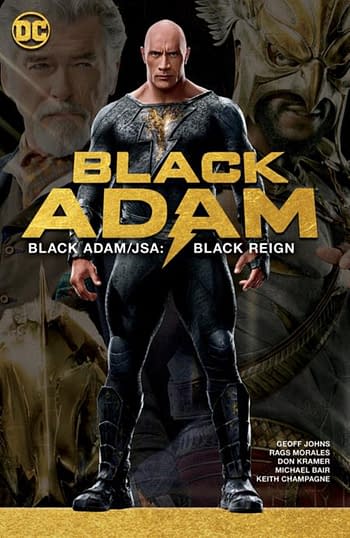
Shazam to the Rescue?
Black Adam was a Captain Marvel antagonist, published by Fawcett until a legal case by National Comics, the forerunner to DC Comics, sued them for similarity to Superman, a case which still rather baffles the mind, but that's the law for you. On his blog, Paul Levitz writes about how, in the seventies, sales for Superman comics had been dropping year by year, while Marvel's sales were starting to grow.
One of the attempt to stem the tide from publisher Carmine Infantino, Paul Levitz explains, "was to get a license for Captain Marvel, the only super hero who significantly outsold Superman at points in the Golden Age. His publisher, Fawcett, had given up the comics business in the mid-50s when the whole field was shrinking, and had settled its long litigation with DC by agreeing not to publish the character any more. Fawcett had concentrated on its magazine business, and in the years since been sold to CBS, and was rebranded as the CBS Magazine Group. Since the Big Red Cheese couldn't be published without DC's consent (and it's not clear that there would have been any other bidders, as the super hero category shrunk after the Batman craze faded), it wasn't a tough deal to negotiate. DC Business Manager Bernie Kashdan did a license with the publishing terms largely on their traditional basis, and off they went. But uniquely, DC would also control all the licensing and media rights, sharing proceeds with CBS."
Black Adam and Co. Revived
So DC Comics licensed the rights to publish Captain Marvel comic books. Even though they couldn't call them Captain Marvel comic books because of… Marvel Comics. But this wasn't the only problem. Paul Levitz explains "With the benefit of 20-20 hindsight and unprovable insight, I'd argue the return of Captain Marvel suffered from three challenges: first, the name of the hero himself was unavailable as the trademark had lapsed and Marvel had wisely jumped in with their own Captain Marvel; second, editor Julie Schwartz arranged a really bad marriage for the creative team, putting Denny O'Neil (who favored serious melodrama) together with C.C. Beck, the hero's original artist (and a determined proponent of the tongue-in-cheek humor that was the series' trademark); and most seriously, misjudging that the audience had simply moved on from the innocence that appreciated the charm of the original, with its talking tiger and menacing worm mastermind. Fan speculation fueled sales of the first issue (I recall buying a stack off the newsstand to ship over to Nick Landau, the British fan entrepreneur who would co-found Forbidden Planet and Titan Distributors), but wasn't enough to sustain the series. Beck was more and more frustrated, and a succession of talented creatives never found a great balance or tone. Notwithstanding that, it would turn out to be an excellent arrangement for DC, with two television series launched and some attendant merchandising."
So a success for the multi-media and merch, less so for the comic book itself. And there were other issues regarding how DC could use the character and still pay money to Fawcett. "One barrier to establishing him successfully in comics seemed to be that original license. It's provisions hadn't really imagined nesting him deeply in the DC universe of characters: it provided that the royalty rate would be pro-rated for a team-up like a BRAVE & BOLD appearance or the eventual SUPERMAN VS. SHAZAM tabloid, but had a 'floor' on the royalty rate that made it impractical to have him as a member of a group like the Justice League, or appearing in some massive mash-up…"
The Marvel Family Buyout
And it was Paul Levitz who came up with the solution that led to the current situation. "By now I was managing the business side of DC, so after discussions with Jenette Kahn and Dick Giordano, off I went to solve this. The most practical solution was to simply buy out CBS' interest in the property: they weren't going to ever go back into the comics business (in fact, they'd sell off their magazine division not long after), and while it was nice to get a modest royalty check every year, it seemed a do-able deal. I negotiated with an only slightly older accountant for their magazine division, David Pecker. David would go on to an illustrious career in magazine publishing, ending up running American Media, the publishers of NATIONAL ENQUIRER, where his exploits would come to a controversial end."
That's putting it politely. David Pecker, who had previously published Trump Style distributed to guests at Donald Trump's properties, is alleged as the publisher of The National Enquirer to have agreed with Trump that he would use the magazine to catch and kill any allegations of sexual affairs against him. He found himself investigated for such dealings, including allegations by Karen McDougal bought for $150,000 in 2016, and $30,000 to Dino Sajudin."
Paul Levitz and Risk vs Reward
Paul Levitz concluded, "We worked out a buyout, and not only of Captain Marvel but of all of the remaining Fawcett comics assets, including stacks of comics that would find their way to the DC library." And although the success over the years has been relatively limited, the Shazam and Black Adam movies, and upcoming sequels, will have more than paid for any risk Levitz may have taken. And may be one of the smartest moves he made at the publisher, and earned Warner Bros. many, many millions. You can read more at Paul Levitz' blog, right here.






